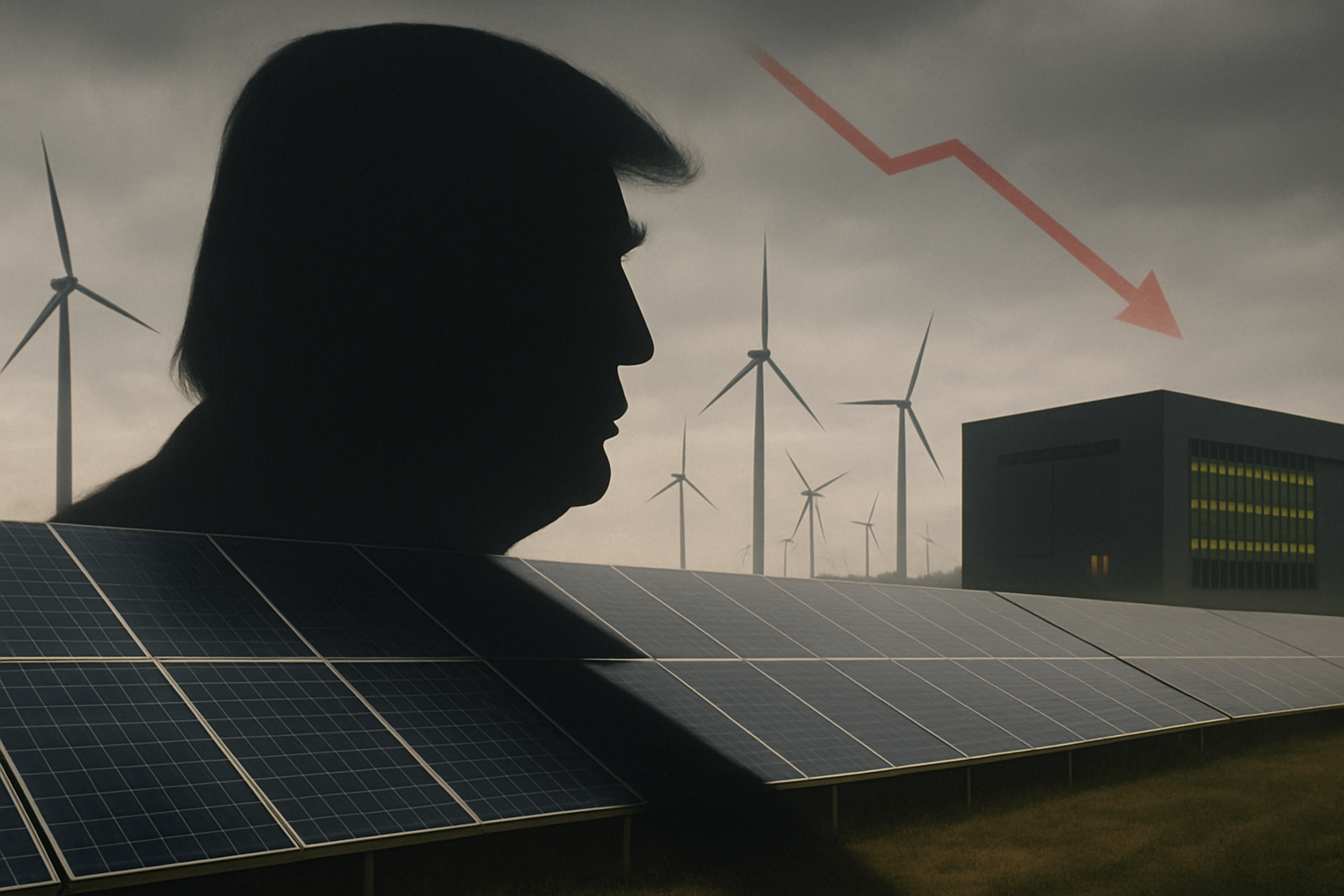The markets never miss a chance to overreact. When former President Trump declared his administration "will not approve wind or farmer destroying Solar," renewable energy stocks didn't just dip—they nosedived.
Sunrun and First Solar plummeted 7.82% and 6.51% respectively, which, considering the existential threat, almost feels... restrained? I mean, imagine someone telling you your entire business model might soon be illegal, and your stock only drops single digits. Wall Street is weird that way.
But this isn't just about solar panel makers taking a hit. We're watching a perfect storm of colliding forces: Trump's well-documented hostility toward renewables, an unprecedented surge in electricity demand from power-hungry AI data centers, and a grid that was already struggling to keep up.
Look, the second-order effects here are what really matter. Take NextEra Energy, which has spent years positioning itself as America's clean energy utility. Their stock dropped 4.2% yesterday. But even the old-school utilities that have been cautiously adding renewables to their portfolios now face an uncomfortable question: what the hell do we do now?
The timing couldn't be more fascinating (or problematic, depending on your portfolio). We're in the middle of the biggest electricity demand surge since the 1950s. AI and data centers are gulping down megawatts like college students at an open bar. McKinsey's projection of a 160% increase in AI-related power consumption by 2030 isn't just a number—it's a flashing red warning light.
So what happens when you kneecap the fastest-growing source of new capacity right when you need it most?
This is where the ripple effects get really interesting. Tech giants like Microsoft, Google, and Amazon have been signing massive power purchase agreements with renewable providers. They're not just securing power; they're securing clean power to meet their ESG commitments. Now both objectives are threatened.
I've been following Nvidia since before the AI boom, and their success is inextricably tied to data centers having abundant electricity. Same goes for data center REITs like Equinix and Digital Realty. These companies now face a reality where their growth could be limited not by demand or innovation, but by something as basic as having enough power to keep the lights on.
(And yes, the irony of an administration supposedly championing American technological dominance potentially creating a bottleneck for the AI revolution isn't lost on anyone.)
Then there's the materials angle. Trump's tariffs were already making metals more expensive for renewable projects. Now what happens to all that copper and steel? Companies like Freeport-McMoRan might need to rethink their projections—and fast.
Nuclear power should be the obvious winner here, right? Well... sort of. Constellation Energy and NuScale Power might benefit eventually, but nuclear isn't some quick fix. Having covered energy infrastructure projects for years, I can tell you that new nuclear plants take forever to permit and build—we're talking a decade or more. Data centers need juice now.
Natural gas producers like EQT and Cheniere seem better positioned in the near term. Gas plants can be built relatively quickly and provide the reliable baseload power that keeps servers humming. The administration's fossil-fuel-friendly stance suggests they'll have smoother sailing through the approval process.
But here's the thing that's keeping developers up at night: what about all those projects already in the pipeline? Billions have been invested based on the IRA's clean energy tax credits. Does yesterday's announcement mean even projects mid-development get axed?
Imagine spending millions on land, permits, and engineering, thinking you were playing by the rules, only to have the game change overnight. That's not just bad business—it's the kind of regulatory whiplash that makes serious capital allocation impossible.
Battery storage companies got absolutely hammered too. Fluence Energy and Stem dropped 9.3% and 11.2%. These aren't small corrections; they're panic selling.
The Biden administration had approved a record 46.5 GW of solar capacity on federal lands. All that work—poof?
Community solar developers might be the most vulnerable. They typically lack the scale and legal firepower of the big utility-scale players. They're the ones I worry about most.
In markets, as in physics, every action creates a reaction. We'll find equilibrium eventually, but the path there just got a whole lot bumpier—and potentially more expensive—than it needed to be. That's not just bad for renewable stocks; it's potentially problematic for our entire technological ecosystem.
